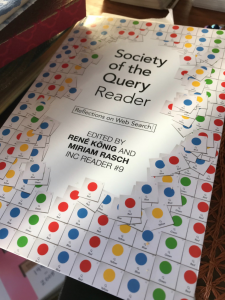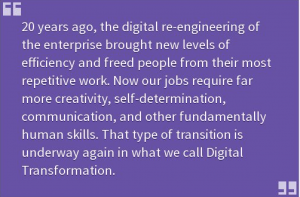You know what kind of year-end blog posts are most valuable? In my mind, it’s ones highlighting the best or most successful content someone’s published throughout the whole year. That editorial winnowing down is a great value add. One good example is Marketing Sherpa’s Best of 2017: MarketingSherpa’s most popular content about email, customer-first marketing, and competitive analysis.
That thought combined with another thought or two in my mind just now and I decided it was time to update an old model I’ve been sharing with people for almost ten years: five ways to add value to social media conversations. That list is due for an update. I wrote it when I was a pro blogger and was sharing thoughts on how the bloggers on my team could get more traction with their blog posts.
These days I’m doing marketing, sales, research, business development, product leadership, influencer engagement, and more over at Sprinklr and so the blogger’s code of adding value needs to be expanded.
Why think about adding value? Few things are more important to building a career in this new, digital, post-scarcity world. You can either extract value or you can add value, and abundance-minded co-creation of value is the best way in this new world to strengthen your resource magnetism. The more value you put out into the world, the more you’ll also get yourself.
Adding value to conversations of general interest builds pass-along value and widens your network.
Here are some ways to do that.
Classic ways to add value in online communication
- Be first. If you can be the first place someone sees some valuable information, people will notice. If you are that person twice, then you’ll start to develop a reputation. Make a regular practice of it and people will pay attention to all the things you say, post, share and write because they’ll want to see what good things you first first or early next. This is what I used to specialize in as a blogger.
- Say it best. If you communicate more clearly, effectively, or insightfully about a topic of general interest, that’s a big value add. Who does that really well? A few examples include Stratechery and market research firm L2, who do incredible YouTube vidoes. Gartner acquired them this Spring.
- Bring multiple perspectives together. Aggregating influencer replies to a question is getting pretty tired, but there are good ways to approach this tactic still. I get my politics from Memeorandum and my tech news from Techmeme, for example.
- Unique perspective. My favorite examples this year is long-time blogger Audrey Watters, whose perspective I wish was less rare, and Jeanne Bliss, who brings a unique practitioner/consultant/journalistic perspective to interviewing corporate leaders in Customer Experience.
- Be funny. This is the hardest one, and I don’t know who does the best job of it, but I do know that whenever I share this list verbally, all the other items are so serious that people laugh when I just say “be funny.” It’s easier said than done! But it is one way to add value to social media conversations online.
That’s the list I’ve been sharing for years, but lately I’ve been thinking that list deserves an update. Here are a few tactics I’m thinking of adding to it for 2018.
Cross networks. Find great things on Twitter and share them on LinkedIn. Work out your issues on Wikipedia and then write an email newsletter about it. I once asked Kirk Borne, the most influential man in data science on Twitter, how he curates such an incredible stream of high-quality data science content. His answer? “Listservs.” So smart.
Explain it differently. Narrative stories transformed into visuals. Data and tables turned into narrative sentences. Video. White boarding. As Dave Gray says in Liminal Thinking, “Drawing things together aligns people on a vision better than words. And if it can’t be drawn, then it can’t be done.”
Draw connections with symphonic thinking. Daniel Pink writes about Symphonic Thinking as an increasingly important ability to draw together disparate things into a whole, to draw connections. I realized in 2016 that symphonic thinking is one of my greatest strengths. Maybe you’re good at it too.
Abstract into a new model. Peter Drucker said that strategic decisions engage with a problem at the highest conceptual level, what’s really at the root of it? And come up with a principal for dealing with it. Mary K Greer says that when you recall a memory from your experience, examining the elements of that experience that stand out in the memory is a powerful way to better understand what’s important to you about life. I think there’s a way that we could take specific information and use it as an opportunity to explore general principles that would be a very valuable contribution to online communication.
Apply a model. I’m not sure what to say about this one, but it’s something I want to explore more in 2018. For example…
Inversion: the practice of exploring how you want to do something by asking how a situation might play out if it went 100% wrong, and then looking at the steps you’d take to do the opposite of that.
Meaning as made of a thing’s context, contrasts, and corollary consequences.
Kirk Borne again once wrote about how data scientists can wrap their minds around really complex data sets by asking which feature of the data is most descriptive, which is most explanatory, and which is most predictive. You can do that with anything.
Aiming to make a bigger impact through small steps, smartly made: focus, leverage, and acceleration. Focus = sense of destination and direction. Leverage = convincing others to contribute more energy than you have alone. Acceleration = taking time for reflection, learning, and refinement to optimize for non-linear improvement. (John Hagel)
Applying a model to an issue is a way to create, capture, or add value just like applying labor plus capital plus technology to resources.
Those are a few things I’ve got on my mind going into this wild, abundant, frightening year of opportunity. How about you?
 That ability to better understand the present in context of the past is one of the many things that’s valuable about old notes. I’ve thought for some time that if I was going to start another company right now, it might focus on re-surfacing new value from old notes. I love thinking about how old wisdom or information sheds new light on new circumstances. That’s a phenomenon I’d like to think about a lot more. For now, some specific examples.
That ability to better understand the present in context of the past is one of the many things that’s valuable about old notes. I’ve thought for some time that if I was going to start another company right now, it might focus on re-surfacing new value from old notes. I love thinking about how old wisdom or information sheds new light on new circumstances. That’s a phenomenon I’d like to think about a lot more. For now, some specific examples.
